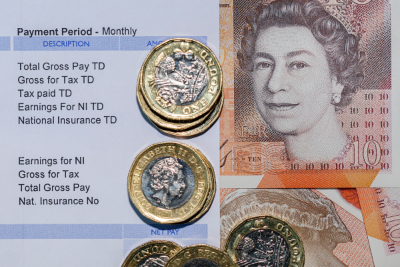Running a company payroll isn’t always straightforward. Common problems include incorrect or late payslips, missed pension payments, under or over-payment of salary, wrong tax calculations and issues with National Insurance (NI) payments. In this blog, we look at what you should do if you find you have inadvertently overpaid an employee’s NI contributions.
National insurance rates are subject to change depending on government decisions and employers must keep up to date with these changes. There are four main categories:
- Class 1 – paid by employers and employees
- Class 2 – paid by the self-employed
- Class 3 – voluntary contribution
- Class 4 – Paid by the self-employed and have profits over a certain amount

Here, we are looking at Class 1 contributions which are payable by employed taxpayers under state pension age, and are made up of a combination of employer payments and employee salary deductions via PAYE. The amounts deducted and paid depend on how much of the employee’s earnings fall within a particular band. For the year 2023-2024 this is:
- Earnings of £242 to £967 per week – 12%
- Earnings of over £967 per week – a further 2% on top
Errors can occur for various reasons. For example, an employee might have another job elsewhere of which you were unaware, and NI calculations should have been carried out based on both jobs. Alternatively, your employee may have reached state pension age and no longer need to pay NI.
If you’re an employer and you find that you have mistakenly overpaid an employee’s NI contributions, you have two options. You can either offset the overpayment against earnings-related contributions which you are due to pay to HMRC in the tax period when you amend your return, or you can claim back the amount which was overpaid from HMRC.
However, if the error was not discovered until after that tax year has ended, then you must refund the overpaid contributions to the employee and then inform HMRC that this has been done by ticking ‘yes’ on the relevant box of the employee’s next Full Payment Submission (FPS). The FPS is sent to HMRC every time an employee is paid and it contains all current payment information about each employee.
There may be circumstances in which you’re not able to repay the amount to your employee, in which case you must tell HMRC that the repayment has not taken place by ticking ‘no’ on the FPS. The overpaid contribution will then be refunded directly by HMRC. It’s worth noting that where an over-payment has taken place, depending on the amount of time before repayment, interest may become due.
However careful you are, mistakes can happen, especially if you’re not experienced at bookkeeping. Using a professional to help run your payroll can be surprisingly cost-effective and could free up more time for running your business. At AMR Bookkeeping Solutions, we manage all aspects of processing payroll for businesses including any liaison with HMRC. Why not give us a call on 01892 559480 or contact us through our website and find out how our friendly and efficient team can help you avoid NI overpayments and other payroll errors.









